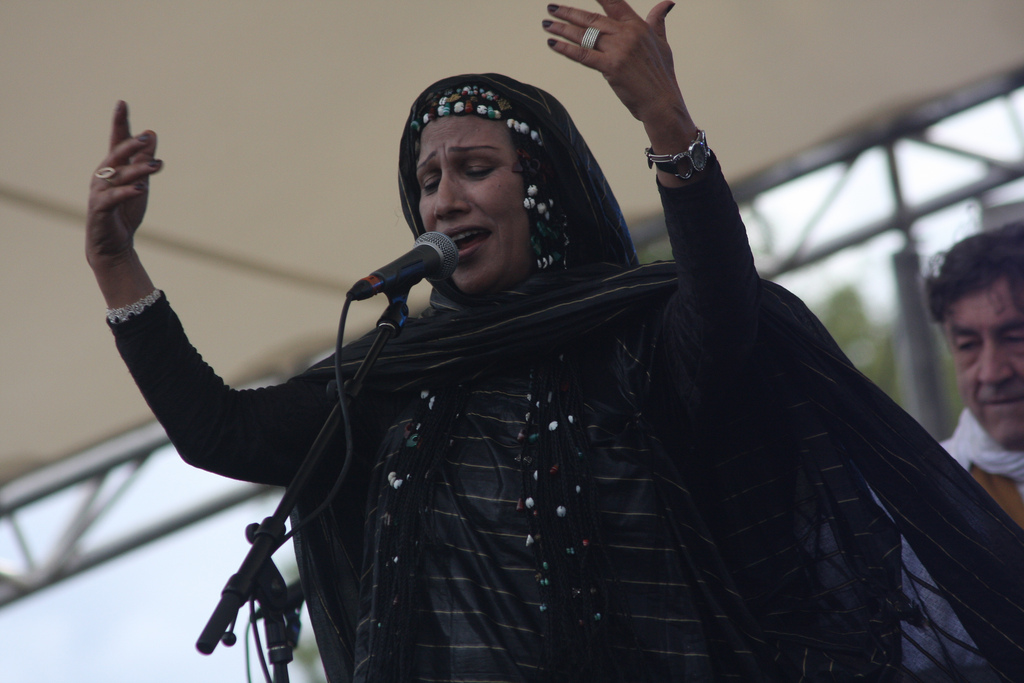Although it was officially declared a Spanish colony in 1912, the Spanish were never able to subdue the Bidan tribes of the Western Sahara – a huge tract of desert between Morocco, Algeria and Mauritania.
Bidan resistance increased as colonies throughout sub-Saharan Africa won their independence in the 1960s. In 1973, the resistance was organised under the political umbrella of the Frente Popular Para la Liberacion de Sagui el-Hamra y de Rio de Oro (the Frente Polisario). When the Spanish dictator Franco died in 1975, Spain lost no time in ridding itself of its colonies and the Western Sahara was hastily abandoned. Spain’s retreat did not, however, realise the Frente Polisario’s dreams of an independent Western Sahara. Spurred by nationalist and economic motives (in the late 1950s immense phosphate reserves were discovered in the region), Morocco and Mauritania quickly stepped into the political vacuum, and laid claims to the area. In 1975, Morocco’s King Hassan led a mass march of Moroccans to the Western Sahara, asserting their “ancestral” right to live there. That same year, approximately 200,000 Sahrawis (the Bidans who recognize the political authority of the Frente Polisario) left the region and settled in four camps across the border in southwest Algeria where they formed the Sahrawi Democratic Arab Republic (SADR), under the direction of the Frente Polisario. In 1979, after several Polisario guerrilla attacks against Nouakchott, Mauritania withdrew its claims to the Western Sahara and Morocco occupied the whole territory.
The Frente Polisario resisted Moroccan occupation as vigorously as they had the Spanish, and for sixteen years Morocco and the SADR were engaged in a bitter war. A stand off was finally reached in 1991 with a UN-brokered ceasefire.
Today, the status of the Western Sahara remains unresolved. Morocco continues to populate the region with settlers from the north, and the SADR continues the struggle for an independent Western Sahara. To the uninitiated ear, the music of the Sahrawis sounds identical to Mauritania’s Moorish Bidan music – both groups play the t’bel (tbal) and the tidinit, for example. However, it is different in several substantial ways. First, the Sahrawi musicians do not adhere to the rules of Bidan classical music. Second, there are fundamental thematic differences in the song texts used: Sahrawi music is highly political, telling of the difficulties of life in the refugee camps, the pain of war, the need for solidarity and the longing for independence.
The fact that the music of the Sahrawis has travelled beyond the camps in the Algerian desert is thanks to the efforts of the Spanish record label Nubenegra. Over the past decade, starting with the release of the three-disc set Sahrauis: Music of the Western Sahara, Nubenegra’s Manuel Dominguez has devoted considerable energy to spreading his passion for the music of the Sahrawis.
The masterpiece among Nubenegra’s half-dozen Sahrawi recordings is Mariem Hassan’s disc with the group Leyoad. Other Sahrawi musicians of note on Nubenegra include guitarist Nayim Alal and the late guitarist/composer Baba Salama.
Header image: Flickr


